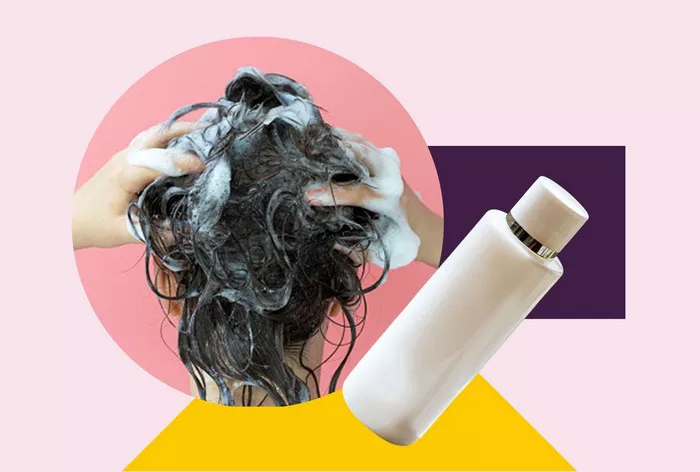Ringworm, despite its name, is not caused by a worm but rather by a fungal infection. This common condition, also known as dermatophytosis, can affect the scalp, body, feet, or nails, causing discomfort and irritation. One of the key strategies in managing ringworm is the use of appropriate shampoos. With a plethora of options available on the market, selecting the right shampoo for ringworm can be overwhelming. This guide aims to simplify the process by outlining important considerations and recommending top products for effectively combating ringworm.
Understanding Ringworm: Causes and Symptoms
Before delving into shampoo selection, it’s crucial to grasp the basics of ringworm. This fungal infection is primarily caused by dermatophyte fungi, which thrive in warm and moist environments. Common sources of ringworm include contaminated surfaces, pets, and direct contact with infected individuals. The symptoms of ringworm vary depending on the affected area but typically include red, scaly patches on the skin, itching, and hair loss in the case of scalp ringworm.
The Role of Shampoo in Treating Ringworm
Shampoos play a vital role in managing ringworm, particularly when the infection affects the scalp or body. Specialized antifungal shampoos contain active ingredients that target the underlying fungus, helping to eliminate it and alleviate symptoms. When used as directed, these shampoos can effectively cleanse the affected area, soothe irritation, and prevent the spread of infection.
Key Considerations When Choosing a Shampoo for Ringworm
Selecting the right shampoo for ringworm requires careful consideration of several factors:
1. Antifungal Ingredients:
Look for shampoos containing antifungal agents such as ketoconazole, selenium sulfide, or ciclopirox. These ingredients are effective in combating the fungus responsible for ringworm.
2. Gentle Formulation:
Since ringworm can cause skin irritation, opt for shampoos with gentle formulations that won’t further aggravate the skin or scalp. Avoid products containing harsh chemicals or fragrances that may cause sensitivity reactions.
3. Suitability for Scalp or Body:
Determine whether the ringworm infection is located on the scalp or body, as this will influence the type of shampoo needed. Some shampoos are specifically formulated for the scalp and may contain additional ingredients to promote hair health.
4. Ease of Use:
Consider the convenience of application and rinsing when choosing a shampoo. Products that lather well and are easy to rinse off can streamline the treatment process, especially for scalp ringworm.
5. Clinical Evidence:
Look for shampoos backed by clinical evidence demonstrating their efficacy in treating ringworm. Products with proven results are more likely to deliver the desired outcomes.
Top Shampoos for Ringworm Treatment
Based on the aforementioned considerations, several shampoos stand out for their effectiveness in treating ringworm:
1. Nizoral Anti-Dandruff Shampoo:
Nizoral contains ketoconazole, a potent antifungal agent that targets the fungus responsible for ringworm. It also helps control dandruff, making it suitable for individuals with scalp ringworm.
2. Selsun Blue Medicated Shampoo:
Selsun Blue contains selenium sulfide, which effectively combats fungal infections like ringworm. Its gentle formulation helps soothe itching and irritation, making it suitable for regular use.
3. Head & Shoulders Clinical Strength Shampoo:
This clinical-strength shampoo contains selenium sulfide and provides relief from itching and flaking associated with ringworm. Its pH-balanced formula is gentle on the scalp and suitable for frequent use.
4. Noble Formula 2% Pyrithione Zinc Shampoo:
This medicated shampoo contains pyrithione zinc, which has antifungal and antibacterial properties. It helps relieve symptoms of ringworm while promoting scalp health and reducing inflammation.
5. Dermasil Labs Dermarest Psoriasis Medicated Shampoo:
While primarily formulated for psoriasis, this shampoo contains active ingredients like zinc pyrithione and salicylic acid, which can also help alleviate symptoms of ringworm on the scalp.
Conclusion
Choosing the right shampoo is crucial for effectively managing ringworm. By considering factors such as antifungal ingredients, formulation, and clinical evidence, individuals can select a shampoo that meets their needs and preferences. It’s important to use the chosen shampoo as directed and to follow a comprehensive treatment plan, which may include other antifungal medications or topical treatments. With the right approach and the appropriate shampoo, individuals can effectively combat ringworm and restore their skin and scalp health.

























